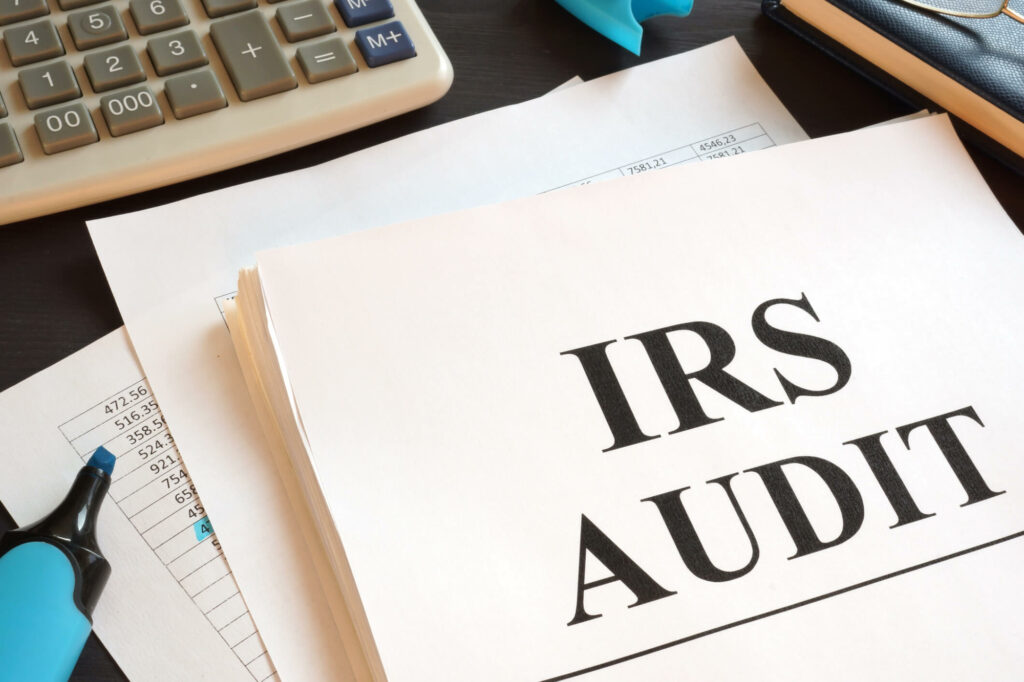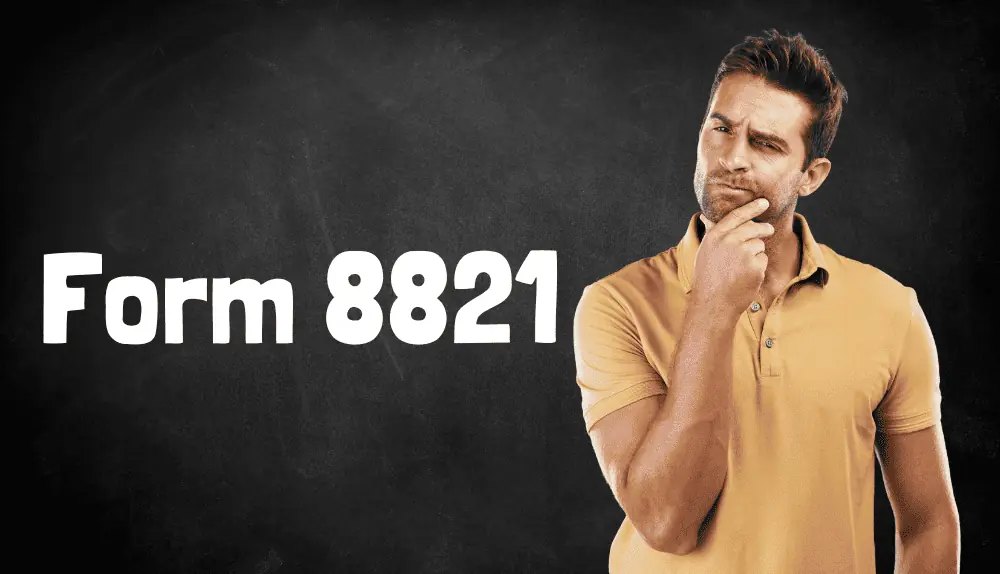Form 8821 is known as the Tax Information Authorization form. It allows you to authorize the IRS to disclose your tax information to a designated third party like an accountant or tax preparer. Completing and filing this form with the IRS is essential for giving your representative the access they need.
In recent years, Form 8821 has become increasingly important due to a variety of factors. The IRS is stepping up enforcement of tax laws and expanding its ability to verify information through third-party reporting. At the same time, errors in tax filings and representation during audits and after death have grown more critical.
This article will discuss why properly filling out and using Form 8821 matters now more than ever. We’ll cover how Form 8821 helps with preparation errors, audits, estate planning, and business entity taxes. By understanding the importance of this form, you can make sure your tax representatives have the authorization required to effectively file your taxes and represent you through any IRS processes.
So whether you’re filing individual tax returns, operating a business, or planning your estate, Form 8821 may be more essential than you realize for compliance, communication, and peace of mind.
Reasons Why Form 8821 Matters Now More Than Ever
Increased IRS enforcement

One of the primary reasons Form 8821 has become more critical in recent years is increased IRS enforcement of tax laws and compliance. The IRS is stepping up audits and examinations while expanding its access to third-party reporting of financial information.
Congress recently approved sizable increases to the IRS budget and authorized the hiring of thousands more employees. A significant portion of these new resources are dedicated to improving tax compliance through more rigorous enforcement. This includes more individual and business tax audits as well as the investigation of suspected tax evasion.
The IRS also now receives considerably more third-party reporting due to changes in regulations and legislation. Banks, investment firms, payroll companies, and other institutions must regularly disclose transactions and income information to the IRS. This third-party data gives the IRS a detailed picture of taxpayers’ financial activities to identify errors and inconsistencies.
As a result of this heightened enforcement environment and improved IRS access to information, every aspect of filing your taxes correctly has become more important. Even small errors or omissions could trigger an inquiry, audit, or penalty.
That’s why properly completing and filing Form 8821 to authorize your tax representatives is critical. By granting the IRS permission to share your tax details with your accountant or preparer, they can ensure all appropriate information is reported accurately. This greatly reduces the chance of any issues stemming from the IRS’s increased capabilities.
Tax preparation errors

Even if you have an accountant or tax preparer complete your taxes, errors, and omissions can still occur on your tax return. Simple mistakes happen more often than people realize, and they can lead to penalties, interest charges, and audits from the IRS.
This is where Form 8821 becomes especially important. By authorizing your tax professional through Form 8821, they have the ability to see your prior year tax filings and other information from the IRS – including any income documents reported by third parties.
Having visibility into your entire tax situation helps your accountant catch errors that you may have missed during the preparation process. They can compare your return to previous filings to identify discrepancies and inconsistencies.
Your preparer can also contact the IRS directly if they notice an error. With Form 8821 on file, the IRS is authorized to work with your representative to correct issues and avoid problems down the road. This ensures taxes are filed accurately the first time.
Of course, mistakes can also occur when filling out Form 8821 itself. Incorrect or outdated information, missing signatures, and other errors can prevent your authorization or cause issues during processing.
To avoid Form 8821 errors, have a tax professional review the form before submitting it. They can verify that:
• All personal information is correct and up-to-date.
• The “Acts authorized” section is completed properly based on your needs.
• You’ve thoroughly reviewed all disclosures and understand what you’re authorizing.
• All required signatures and dates are included.
Audit representation

In an environment of increased IRS enforcement and scrutiny, facing an audit has become more of a possibility for many taxpayers. Having proper representation during an audit can greatly influence the outcome and any potential tax savings.
Form 8821 plays an important role in audit representation by giving your tax representative the authorization needed to effectively handle an audit on your behalf. Without a valid Form 8821 on file, the IRS may refuse to discuss your tax return with your accountant or disclose critical information needed for your defense.
With Form 8821 in place, your representative has full access to your IRS records. They can review prior tax returns, examine audit work papers created by the IRS agent and obtain documentation of any changes or proposed assessments.
During the audit itself, your authorized representative can negotiate directly with the IRS agent on your behalf. They can explain any errors or omissions on your return, provide documentation to support your positions, and argue for the most favorable audit results possible. Having effective advocacy can significantly reduce potential tax bills and penalties stemming from an audit.
For the most comprehensive representation, consider filling out Form 2848 (Power of Attorney) in addition to Form 8821. This officially grants your representative power of attorney, giving them full authority to perform any action you can on your behalf before the IRS.
Estate planning
Form 8821 is increasingly important for estate planning purposes, ensuring a smooth transition of tax responsibilities after you pass away. By completing Form 8821 for your power of attorney, executor, or other estate representatives, you alleviate potential tax issues down the road.
When you die, your estate typically remains responsible for filing any final tax returns covering the period up until your death. This includes income tax returns, as well as estate, gift, and generation-skipping transfer tax returns.
Without proper Form 8821 authorizations in place for your estate representatives, the IRS likely won’t work with them or disclose important tax information needed to accurately file those final returns. This could result in filing delays, errors, and potential penalties.
Furthermore, your estate may need to respond to any IRS inquiries or audits regarding final tax years for several years after death. Again, without Form 8821 on file, your executor may be unable to effectively handle post-mortem tax matters on behalf of your estate.
For estate planning purposes, Form 8821 has no expiration date. Once filed, it remains valid indefinitely, authorizing representatives for all tax matters regarding periods both before and after your death.
Therefore, completing Form 8821 now while you’re still living – authorizing your power of attorney, executor, and any other estate representatives – ensures that those individuals can properly address any outstanding tax issues after you pass away. This provides continuity and closure for any remaining tax obligations.
Business entity tax matters
For business owners and the self-employed, Form 8821 has become essential for proper compliance and tax planning related to business entities. Accountants and tax professionals need access to full financial information in order to prepare accurate tax returns for businesses.
The IRS now requires most business entity tax returns – including schedules, attachments, and supporting documents – to be e-filed. This means accountants must have all the necessary information and authorization to file on behalf of the business.
Without a complete and valid Form 8821 on record for the business, the IRS may refuse an electronically filed return. This could trigger delays, penalties, and other complications that undermine timely compliance.
Form 8821 is also important for LLCs, corporations, partnerships, and other entities when facing an IRS audit or inquiry. Representation by an authorized accountant greatly increases the chances of a favorable outcome. Without Form 8821 in place, the IRS may not work with your representative at all.
Business owners often overlook completing a separate Form 8821 for each business entity they operate. It’s critical to authorize representatives specifically for each LLC, corporation, partnership, etc. as a distinct taxpayer.
Authorizing your personal tax preparer to also represent your business entities requires a Form 8821 for both your individual and business capacity. This ensures full access to all relevant entity tax information.
Conclusion
Form 8821 plays a critical role for taxpayers today due to factors like increased IRS enforcement, preparation errors, audit representation needs, estate planning requirements, and complex business entity taxes. Properly completing and filing this form ensures that your tax professionals have the necessary authorization to effectively handle your tax matters.
While Form 8821 has been around for years, its importance has grown substantially recently. The changes in the tax landscape mean taking these simple steps now to authorize representatives can provide essential help navigating compliance complexities in the future.
So discuss Form 8821 with your accountant, power of attorney, executor, and any other tax professionals who may need access to your tax information. Complete a separate form for your individual, trust, business, and estate tax needs. Then file each form with the IRS to grant proper authorization.
By taking this small but meaningful step, you empower your representatives to handle your taxes competently and confidently in the years ahead. Don’t overlook the power of Form 8821 – fill it out correctly and with careful precision. Your future self will thank you.

